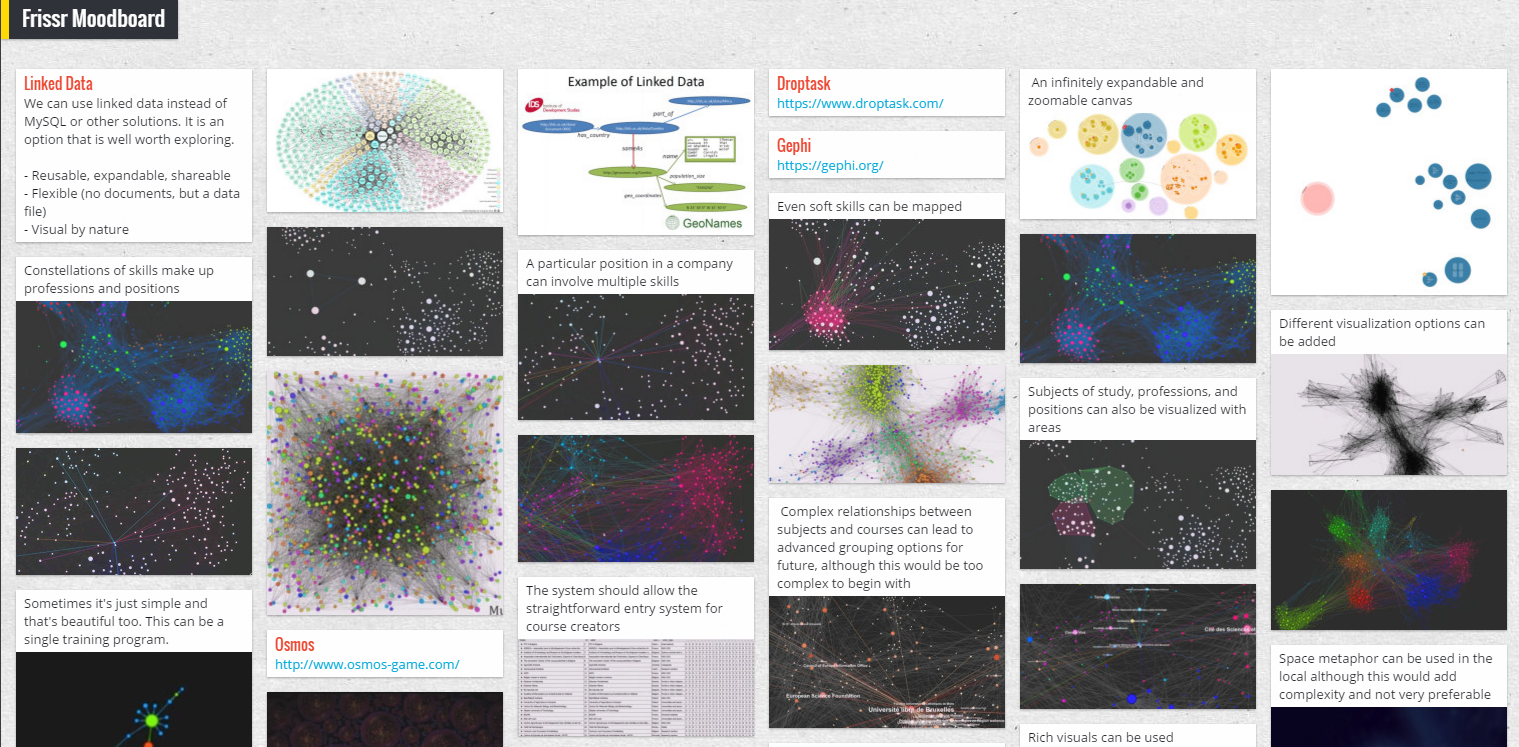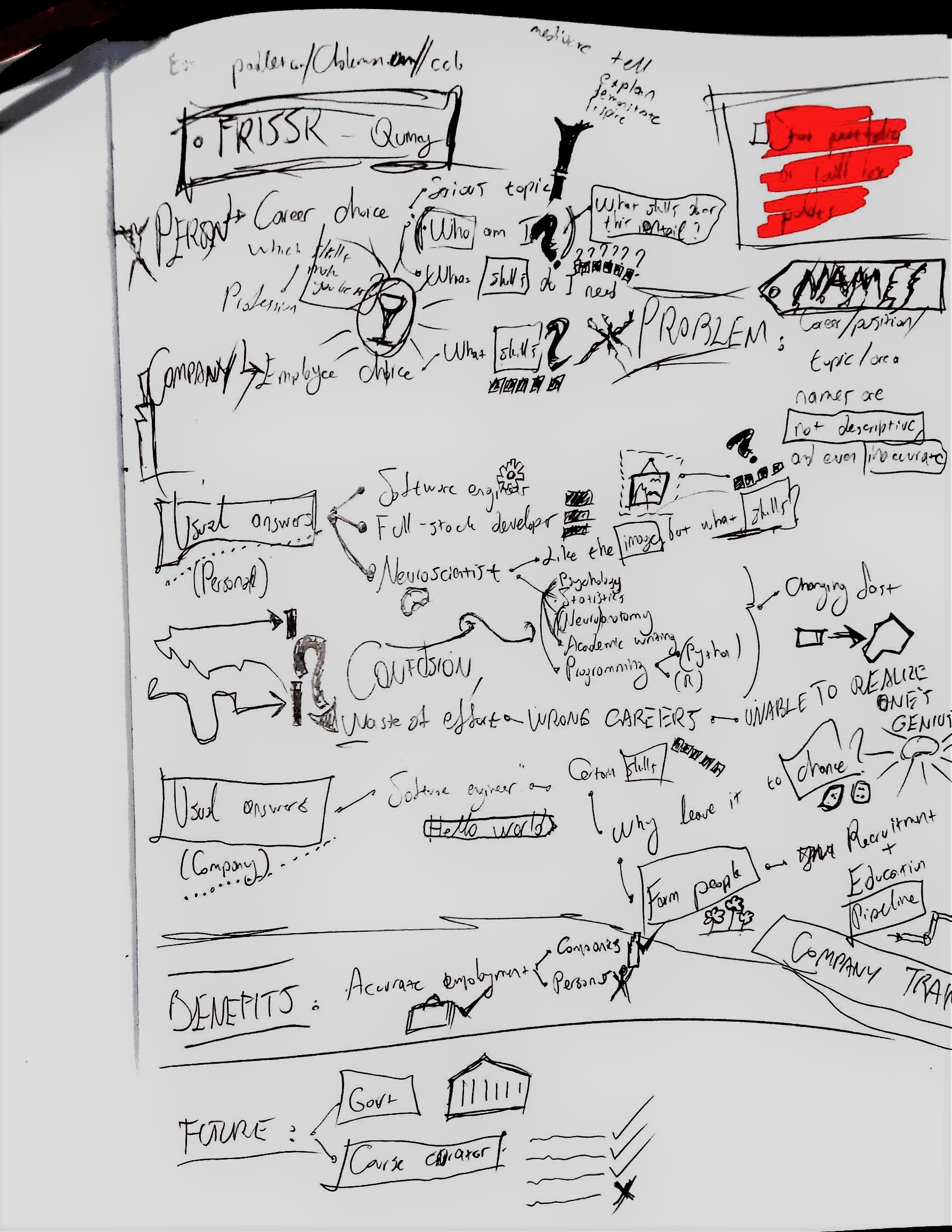Project Journal
Utopia
Did you ever walk into a library, looked at the names of books, and felt that feeling of wonder? The wonder that lingers only for a few moments before it was strangled by the realization of impossibility of understanding all the information stored there? Each book required understanding of another to be read. They were encrypted. Only those who had the time, patience, and resources would be able to decrypt them. And even those who could, would only be able to master only a fraction of the existing knowledge while remaining a stranger to the rest of what humanity knows. Yet, that would be enough to feel very clever against those who do could not decrypt. "Capability," "intelligence," "talent," "discipline," "ten thousand hours" were required to decrypt the books. As you would walk out of the library, you would be lucky if you didn't feel stupid.
Imagine a library where each book holds an animated summary that has to explain the information it contains within only a few minutes, which leaves itself to an interactive menu that would allow deeper exploration of the topics of choice while still allowing users to choose the level of detail and difficulty of instruction. Researchers, teachers, designers, animators, programmers work together to communicate information as ergonomically as possible. The teams that create mind expanding educational materials rival and surpass Hollywood crews. Rather than various entities that keep slaying each other on a big screen, we look deeper and deeper into our existence and out to the universe now. We do not spend billions of Dollars and Euros on keeping the masses sedated with meaningless entertainment, but on awakening each and every one of us on this planet. The ivory tower language, the encrypted language (which the researchers of the old has used to prove that they were more intelligent than the others), is now only history, and it no longer contributes to keeping the masses ignorant. We still use terms and jargon, but they are carefully constructed to convey meaning rather than to hide it, and there is always an explanation for those who don't understand.
The scientific language and the terms in it are no more a problem also because we now have reading software that knows our level of knowledge and displays information that is suitable for our mind. Plus, because researchers stopped trying to control everything and academia is neither undermanned nor poorly financed anymore, they left writing to professionals. Now, each university has an editorial department that is responsible for perfecting (and compacting) the research reports, just like they have educational design departments that make the materials come alive and see to it that they are as accessible as possible for a broad range of audiences (such animations now replaced the abstracts of articles).
Similarly, researchers also stopped trying to be teachers among other ten things at the same time, as with such multitasking, they failed for centuries to communicate what they have seen to those who did not yet see. Academics also no longer use their positions to to feed their egos or treat those who do not have the knowledge as inferiors. Instead of using ivory tower language to obscure what they know and look down to those who cannot keep up, they now feel responsible when their audiences do not understand them. They now see that understanding has never been a matter of intellectual capacity, but of having time and love for the topic or has been a result of the learning method.
Teaching is now done by professionals too, who are trained in pedagogy, cognitive ergonomy, and neurodiversity. Science is finally taught scientifically. There are no more archaic walls of text that are wrongfully called presentations. Educators no longer impose unrealistic expectations on students such as having to attend three types of verbal information streams at the same time 11. i.e., Attending to a presentation, taking notes, and listening to a lecturer while trying to suppress the verbal information from one modality in order to focus on the other, and then trying to switch back before missing something, and hopefully finding some kind of synchronization between these information streams every once in a while.. Education is now informed by educational neuroscience and cognitive ergonomy, and lectures are now all recorded for later viewing, and education is blended (i.e., it is an effective mix of online and offline instruction). Students come to lectures for inspirational purposes rather than didactic learning and indeed, only the inspiring teachers can attract students to their face-to-face classes. The didactic learning is accomplished already by educational material that is a work of art which is made available for free to the world online, and once again, constructed by professionals rather than researchers who are not specialized in teaching. This also allows researchers to use their time more efficiently and focus on their core competencies rather than on side activities and obligations.
And finally, teaching is neurodiverse and all educational materials are adapted for various audiences such as those with autism and dyslexia. It's not only that the alternative versions of the same educational material (such as text, visuals, video, animation, mind maps and so on) made it easier to learn for individuals with different brain configurations, but it also made learning much more efficient for the 'neurotypicals.' After all, why read while you can watch, unless you need to know the details? Yes, it took us centuries, but we do not judge people anymore by demonstrations of their intelligence through certain tasks that are popular in society. We now acknowledge different kinds of intelligence and that there is a genius in each human being that is awaiting to be awakened by the right environment and right medium of stimulation. The 'mentally sick,' 'mentally challenged,' or 'stupid' are no more in our everyday dictionaries and such distinctions are now seen as part of the way of thinking that created racism. We finally accepted that we are a neurologically diverse species, and accepted the conclusion that the functioning problems of the neuro-minorities were being caused by the design of the society and our knowledge systems of the past age. Now we know better: dysfunction of a human being can only be the result of the design of a culture, and cannot be an inherent quality. We no longer live up to the ideal of being 'neurotypical' or 'normal' which is nothing but an indication of statistical occurence and has nothing to do with health or functioning in an objective manner. Because now we designed a society and an education system that does not require being part of the statistical majority, 'functioning' is also not a privilege of the statistically normal anymore. Neurodiversity has became the keystone of education design.
This can all begin with an initiative that has the aim of building the most ergonomic and widely accessible education system possible, and this can happen with or without academia's cooperation.
Mood Board
This is a mood board to stimulate creativity and demonstrate some of the paths that can be taken with the project.
You can click here to reach the interactive mood board.
Concept Presentation
This was a presentation that gave an overview of the Plato project by using an example visualization from Droptask.com. A similar visual style was adopted during the project.
Presentation draft
There were no slides developed except a screenshot from Droptask.com, a platform that will likely to resemble the prototype. However, for completeness, the presentation draft/outline can be seen below.
Presentation and conformist response to criticisms
The presentation attracted criticism for weighing heavily on visualization but not incorporating classical gamification elements. This was partly caused by not introducing the planned dashboard interface that users can track their progress and receive rewards for completing courses. I acknowledged the criticisms and the future revisions included more gamification elements.
Non-conformist response to criticisms
Although I acknowledge the points that were made, there was some opposition from my side against the necessity of incorporating classical implication elements.
• Although the project was mostly visualization based, at least during the presentation, the reward structure that is built into it was mainly based on real-world rewards— such as getting an internship at the end of a training module or achieving knowledge that is required to qualify for a profession. When visualized in an effective way understanding of one's self, skills, and capabilities can tap the the person's need for progress, closure, and need for meaning, and therefore motivate him/her to come back to the interface to build upon it. In other words, if a system is created to mirror one's inner reality with clarity, would this person be motivated to come back to synchronize this system with his inner reality? If a system can mirror one's inner game, would there be another level of gaming needed? Where do we draw the line between a visualization/exploration/simulation of one's inner reality and a game? If something is very beautifully simulated, and the user takes great pleasure in navigating in it, wouldn't that blur the line between a game and simulation? What about the exploration 'games?' that has no apparent goals or storyline such as Minecraft or Lego? As Alan Watts puts it: does the dancer dance to reach the other side of the room (i.e., a goal), or to enjoy the process (i.e., blissful exploration)? If it was the former, the best dancers would be those who get from one side of the room to the other fastest. Of course, in a society where external rewards, goals and gratification are the main mediums of motivation; and where people are disconnected from their authentic selves (and therefore are not sure what motivates them), a game/simulation/visualization that is aimed at one's internal world, internal motivations, and the process may indeed fail—or perhaps succeed, if it could help people to visualize who they are.
• Creativity is doing something that has not been done before, and sometimes previous research stands in the way. Being too much rooted in the previous research can limit that creativity. In fact, being research oriented in a creative field can cause us to forget our intuitive knowledge of what games are, and create products that is not different than a Skinner box 22. Skinner boxes are apparatuses that are used for performing experiments in conditioning and training (mice) through reward/punishment mechanisms.— they would work, but would they add anything significant, or inspire anybody? The boxes we create may succeed in creating external motivation by giving rewards in form virtual badges and trohies, but it is arguable whether they can foster internal motivation. The idea behind the current project is rather to create such an internal motivation by allowing an individual to explore his/her inner space with precision (i.e., by creating an knowledge map) and decide on the next actions with clarity (by suggesting next courses, goals, suitable professions, and positions based on one's current knowledge).
• It is peculiar that science sometimes requires us to ignore our intuitive knowledge of what a game should be and how it should be played—something we knew since we're three years old. The beauty of this kind of intuitive knowledge is that it is unique to the individual and cannot be defined neither by rules or science alone. This kind of creativity (and yes, combined with some cumulative knowledge) can lead to creative and inspiring results.
Conclusions after plenty of kicking and screaming
In the end, I came to terms with the idea that it is realistic to worry about keeping users on an online education platform, as human motivation is indeed a tricky topic especially when it comes to developing one's self. So, I incorporated more gamification elements to the project. However, I my reaction also did not abate, and I kept my commitment in thinking outside the box while incorporating these gamification paradigms. After all, if previous research figured it out, there would be unprecedented success in the online education—and there isn't. Sweet balance...

